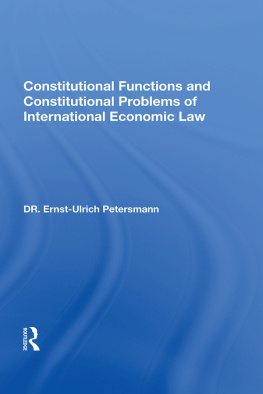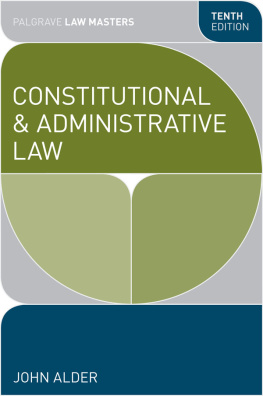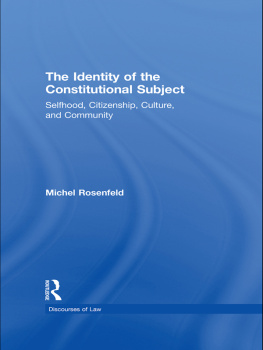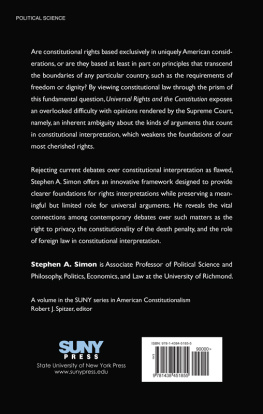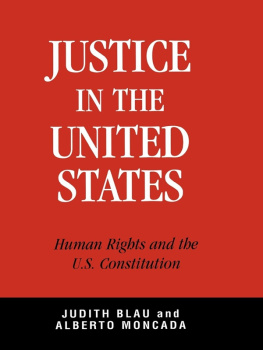Studies on Modern Asia and Africa
Volume 1
Changing Law in Developing Countries
First published in 1963 by George Allen & Unwin Ltd
This edition first published in 2022
by Routledge
2 Park Square, Milton Park, Abingdon, Oxon OX14 4RN
and by Routledge
605 Third Avenue, New York, NY 10158
Routledge is an imprint of the Taylor & Francis Group, an informa business
1963 George Allen & Unwin Ltd
All rights reserved. No part of this book may be reprinted or reproduced or utilised in any form or by any electronic, mechanical, or other means, now known or hereafter invented, including photocopying and recording, or in any information storage or retrieval system, without permission in writing from the publishers.
Trademark notice: Product or corporate names may be trademarks or registered trademarks, and are used only for identification and explanation without intent to infringe.
British Library Cataloguing in Publication Data
A catalogue record for this book is available from the British Library
ISBN: 978-1-03-215171-7 (Set)
ISBN: 978-1-00-324754-8 (Set) (ebk)
ISBN: 978-1-03-215778-8 (Volume 1) (hbk)
ISBN: 978-1-03-215790-0 (Volume 1) (pbk)
ISBN: 978-1-00-324567-4 (Volume 1) (ebk)
DOI: 10.4324/9781003245674
Publishers Note
The publisher has gone to great lengths to ensure the quality of this reprint but points out that some imperfections in the original copies may be apparent.
Disclaimer
The publisher has made every effort to trace copyright holders and would welcome correspondence from those they have been unable to trace.
first published in 1963
This book is copyright under the Berne Convention. Apart from any fair dealing for the purposes of private study, research, criticism or review, as permitted under the Copyright Act 1956, no portion may be reproduced by any process without written permission. Enquiry should be made to the publishers.
George Allen & Unwin Ltd, 1963
printed in great britain
in 11 on 12 point Fournier type
By unwin brothers ltd
woking and london
Foreword
The present volume finds its genesis in a series of lectures under the same general title given during the academic year 1961-62. This series, in its turn, was initially built up round the three University Lectures which Sir Kenneth Roberts-Wray was invited to give, under the auspices of the Board of Studies in Laws of the University of London, at the School of Oriental and African Studies; for it seemed appropriate to make these University Lectures the nucleus of a series of fortnightly lectures, extending throughout the session, in which members of the Department of Law at the School joined with distinguished guests in providing what might be regarded as somewhat analogous, within the field of their own particular interests, to the series on Current Legal Problems which University College has sponsored for so many years. This series seems to have met a distinct need, and to have aroused a sustained interest. Such, moreover, is the current importance of this subject that the decision has been taken to reproduce the papers in printed formtogether with two further papers on the same subjectso that they may reach a wider audience.
In the present volume chapters one, three and four represent Sir Kenneth Roberts-Wrays three lectures, on The Authority of the United Kingdom in Dependent Territories, The Legal Machinery for the Transition from Dependence to Independence, and The Independence of the Judiciary in Commonwealth Countries, respectively. Sir Kenneths experience as Legal Adviser to both the Colonial Office and the Commonwealth Relations Office during many years of unprecedented development gives him unique qualifications to provide an authoritative treatment of these subjects. It is particularly fitting, therefore, that his successor at the Colonial Office, Mr J. C. McPetrie, should contribute a Survey of Constitutions Drafted at the Colonial Office since 1944 as chapter two.
An outstanding characteristic of many of these constitutions is the inclusion, and often the entrenchment, of fundamental rights, so chapter five represents a study of this subject by Professor A. Gledhill, whose work in Constitutional Law has frequently centred round this topic, particularly in its context in the Indian Subcontinent. It was appropriate, therefore, to follow up this more general treatment of such rights by Sir Orby Moothams University Lecture on Constitutional Writs in Indiaa subject for which his previous appointment as Chief Justice of the Allahabad High Court gave him an abundance of personal experience. And the more general part of this volume is fittingly concluded by a historical examination of the phrase Justice, Equity and Good Conscience provided by Dr J. D. M. Derrett, whose legal interests cover a very wide field.
Next the volume turns more particularly to Africa. Sir Sydney Littlewood, previously President of the Law Society, provides a chapter on The Legal Profession in African Territoriesa subject which he has very much at heart; for my own contribution I chose the subject Islamic Law in Africa: Problems of Today and Tomorrow; Dr R. Y. Hedges, formerly Chief Justice of the Western Region of Nigeria, has provided a study of Liability under the Nigerian Criminal Code; Dr A. N. Allott, a pioneer in many aspects of research in African law, has tackled the subject of Legal Development and Economic Growth in Africa; and Mr J. S. Read, another specialist in African law, has contributed a paper on Womens Status and Law Reform.
Finally, our attention is directed again to Asia. Mr N. J. Coulson, whose speciality is Islamic Law, discusses the recent legislation on Family Law in Pakistan, while Mr H. McAleavy, whose particular interest is Chinese Law, has contributed a paper on Chinese Law in Hong Kong: The Choice of Sources.
No attempt has been made radically to change the style of these lectures as they were given, since it was felt that any resulting gain would be more than matched by a corresponding loss.
J. N. D. ANDERSON
1 The Authority of the United Kingdom in Dependent Territories
sir kenneth roberts-wray
Formerly Legal Adviser to the Secretary of State for the Colonies and the Secretary of State for Commonwealth Relations
The forms and processes of control and supervision exercised by the Government of the United Kingdom in dependent territories form a vast subject which could, without difficulty, be made to occupy weekly lectures throughout an academic term. On the other hand, it is possible to give (and, indeed, I have several times given) a fairly complete skeleton picture in less than an hour; but that would be of no use to one with experience of the subject, unless he were in need of sleep; and, as I know from experience, it would leave the less informed with nothing to take away with him except a state of bewilderment. For the empiricism and inhibitions of politicians and constitutional lawyers, reflected in scrappy and sometimes badly drafted Acts of Parliament (I am not thinking of present-day Parliamentary Counsel) have succeeded in producing a jigsaw puzzle which defies any attempt to combine brevity and comprehensiveness with clarity.
I therefore propose to compromise; to present a simplified overall sketch, but to discuss interesting points in detail. In particular I shall, at some length, presume to call in question a few generally accepted practices or propositions of law and I shall present one or two problems which do not appear previously to have been unearthed or fully discussed. I hope it is not necessary to make apologies for concentrating my attention on the specialist; for I feel that I should try to make a fresh contribution, however small, to a subject upon which a number of learned authors have written.



